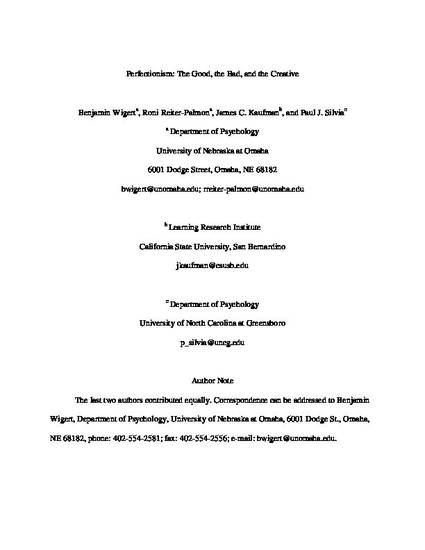
The influence of adaptive and maladaptive perfectionism on creativity was examined. Initially, six measures of creativity were administered, including creative self-perceptions, behavior, and performance measures. Adaptive perfectionism was weakly positively related to creativity, whereas maladaptive perfectionism was unrelated to creativity across five of the six measures. A follow-up study assessed whether initial findings could be generalized to an everyday problem-solving task. Results indicated that adaptive perfectionism was related to higher quality but not originality of solutions. Further, a curvilinear relationship in the shape of an inverted “U” occurred between adaptive perfectionism and four of eight creativity measures. Overall, adaptive perfectionism was consistently, albeit weakly, related to creativity across various types of measures, whereas maladaptive perfectionism was not related to creativity.
Available at: http://works.bepress.com/roni_reiter-palmon/24/

NOTICE: this is the author’s version of a work that was accepted for publication in Journal of Research in Personality. Changes resulting from the publishing process, such as peer review, editing, corrections, structural formatting, and other quality control mechanisms may not be reflected in this document. Changes may have been made to this work since it was submitted for publication. A definitive version was subsequently published in Journal of Research in Personality, Vol. 46, Issue 6, December 2012, DOI# 10.1016/j.jrp.2012.08.007.